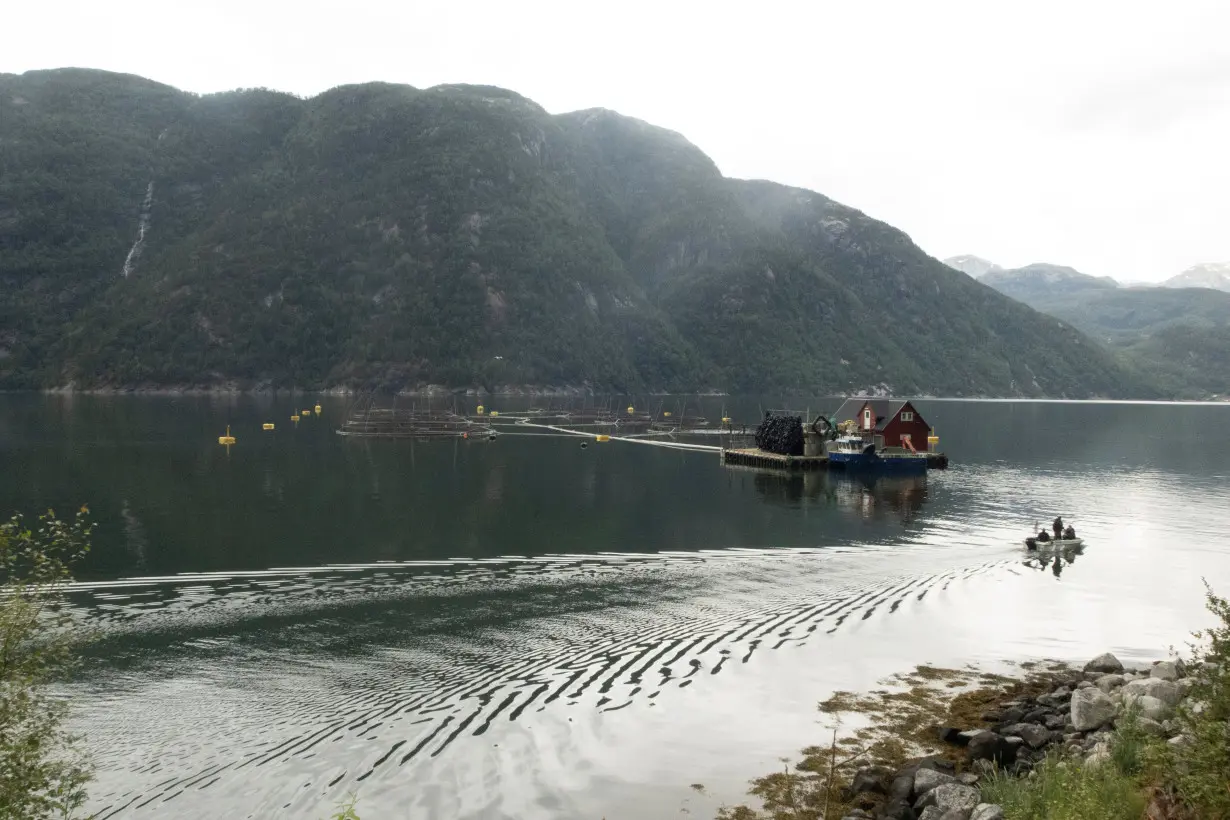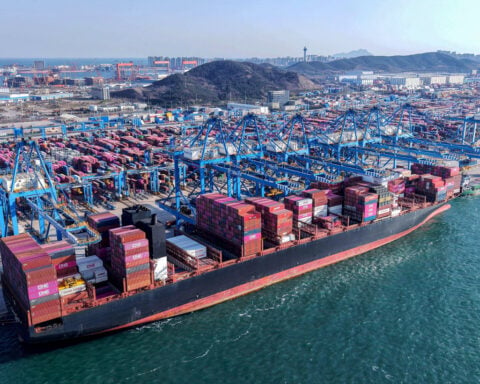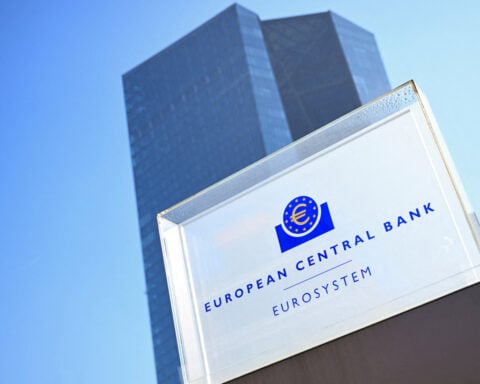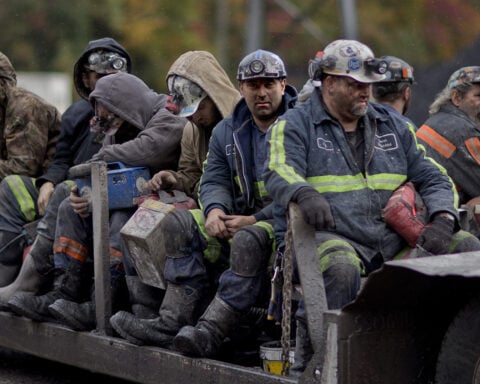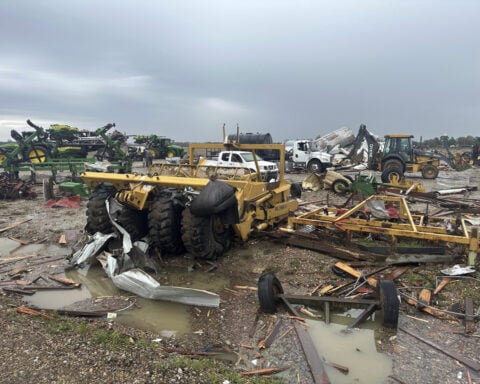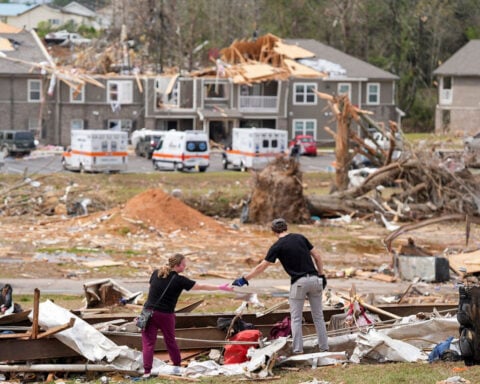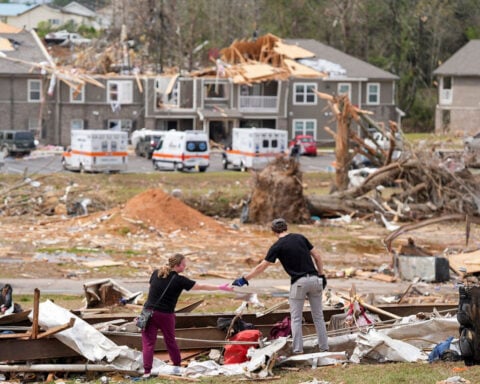By Jesus Calero
(Reuters) - Norwegian salmon farmers face challenges from an unusually harsh winter and the El Nino climate phenomenon which led to record fish mortality and concerns over long-term forecasts ahead of a warmer summer.
El Nino — a climate pattern raising temperatures across the planet — followed by colder waters and a 20-year high in jellyfish attacks have driven fish mortality to a record 16.7% so far this year, the Norwegian Veterinary Institute said.
"This winter has been something close to a perfect storm for the industry when it comes to challenging farming conditions," Carnegie analyst Philip Scrase said.
Norway, the largest producer of farmed Atlantic salmon, accounting for 50% of the global market, hopes for a healing summer after a tough first half of the year.
But record high temperatures and warmer waters increase the threat of sea lice for salmon farmers.
"Treating sea lice (vaccines) often stresses the fish, posing a threat to its welfare and its resilience to other diseases," DNB analyst Alexander Aukner said.
To protect the fish, companies like Leroy Seafood are testing special underwater cages deep in the sea to keep the lice at bay.
Farmers are also keeping young salmon longer in land-based facilities to shield them from harsh climate conditions, though this has not improved mortality rates.
Some facilities are running at too high temperatures, causing fish to outgrow their organs and die when they enter seawater, said Christian Olsen Nordby and Kristoffer Haugland from Arctic Securities.
EXPORT BAN, PROCESSING JAM
Salmon exports make up about 2% of Norway's annual GDP, with 1.2 million tonnes of salmon valued at $11.2 billion exported last year, Norwegian Seafood Council said.
To protect the industry's reputation, Norway has banned the export of wounded fish, classified as low-grade salmon.
This forces farmers to increase domestic processing of low-grade salmon into premium products like fillets or smoked goods that they can sell abroad legally.
Before the ban, unprocessed fish bypassed tariff barriers to reach European markets, but now farmers need to sell the surplus injured fish at a discount to third-party processors, Scrase said.
Those with filleting capacity, like SalMar, meanwhile face inefficiencies in their facilities due to a lack of workers needed to handle the higher volumes.
To tackle this, world's largest producer Mowi and smaller rival Grieg Seafood are upgrading their processing facilities.
However, Scrase noted that salmon spot prices were sliding, as the availability of premium salmon eases supply constraints.
ENOUGH FOR A GUIDANCE CUT
Despite farmers' efforts, analysts doubt the industry's ability to maintain harvest volumes.
SalMar lowered its 2024 volume guidance earlier this year, while other major players have kept projections unchanged.
Kontali, an aquaculture data provider, has revised its 2024 volume growth estimate for Norway and the global market to just 1%, reflecting lower sea biomass.
Aukner and Scrase expect many farmers to struggle to meet their volume targets this year, though the summer is crucial to determine full-year volumes.
"We are yet to see material downgrades in harvest volumes, but the 'buffer' in volume guidance has definitely been eaten into and reduced," Nordby and Haugland said.
($1 = 10.9335 Norwegian crowns)
(Reporting by Jesus Calero in Gdansk; editing by Milla Nissi)

 Trump has begun another trade war. Here's a timeline of how we got here
Trump has begun another trade war. Here's a timeline of how we got here
 Canada's leader laments lost friendship with US in town that sheltered stranded Americans after 9/11
Canada's leader laments lost friendship with US in town that sheltered stranded Americans after 9/11
 Chinese EV giant BYD's fourth-quarter profit leaps 73%
Chinese EV giant BYD's fourth-quarter profit leaps 73%
 You're an American in another land? Prepare to talk about the why and how of Trump 2.0
You're an American in another land? Prepare to talk about the why and how of Trump 2.0
 Chalk talk: Star power, top teams and No. 5 seeds headline the women's March Madness Sweet 16
Chalk talk: Star power, top teams and No. 5 seeds headline the women's March Madness Sweet 16
 Purdue returns to Sweet 16 with 76-62 win over McNeese in March Madness
Purdue returns to Sweet 16 with 76-62 win over McNeese in March Madness
